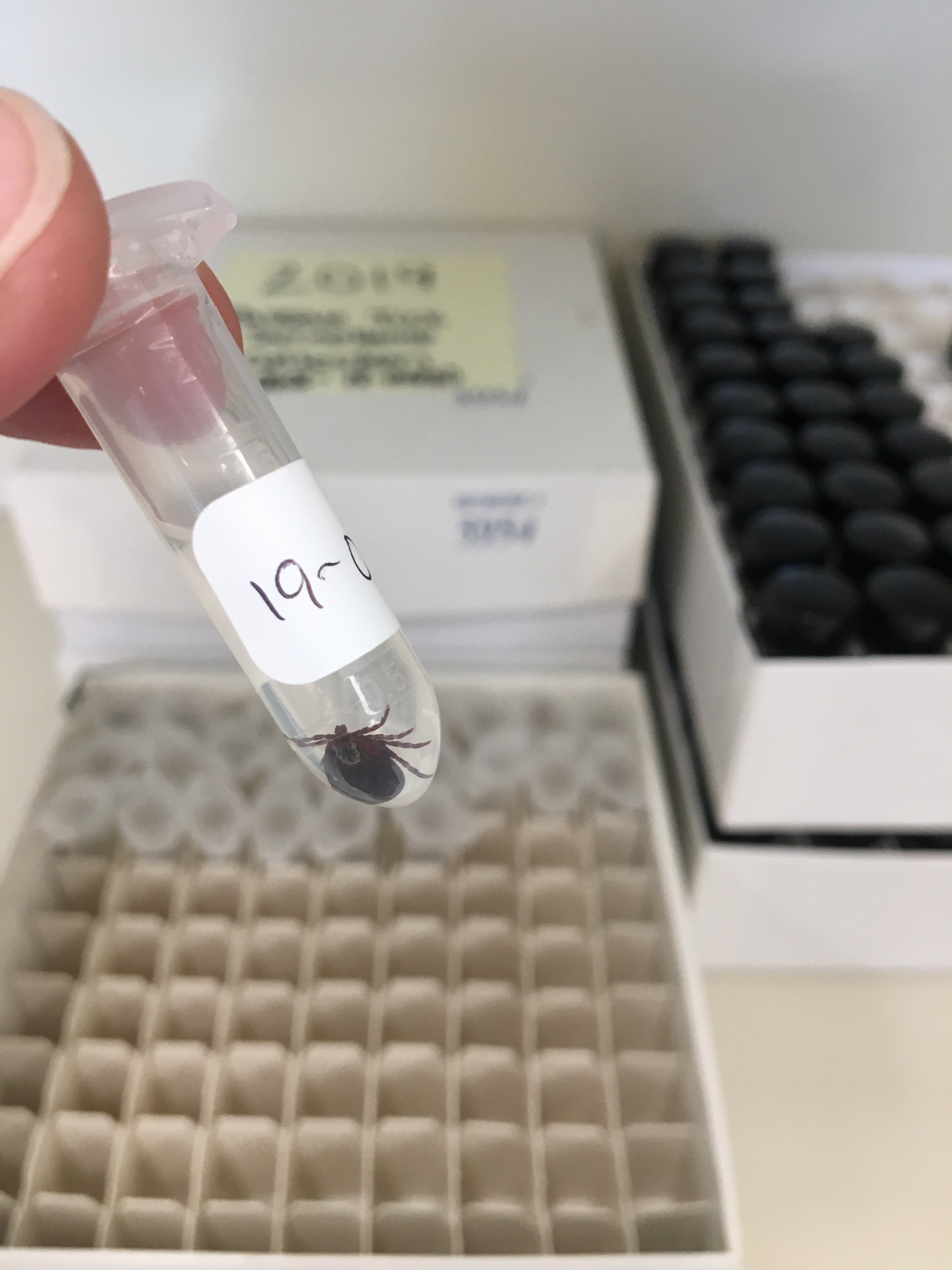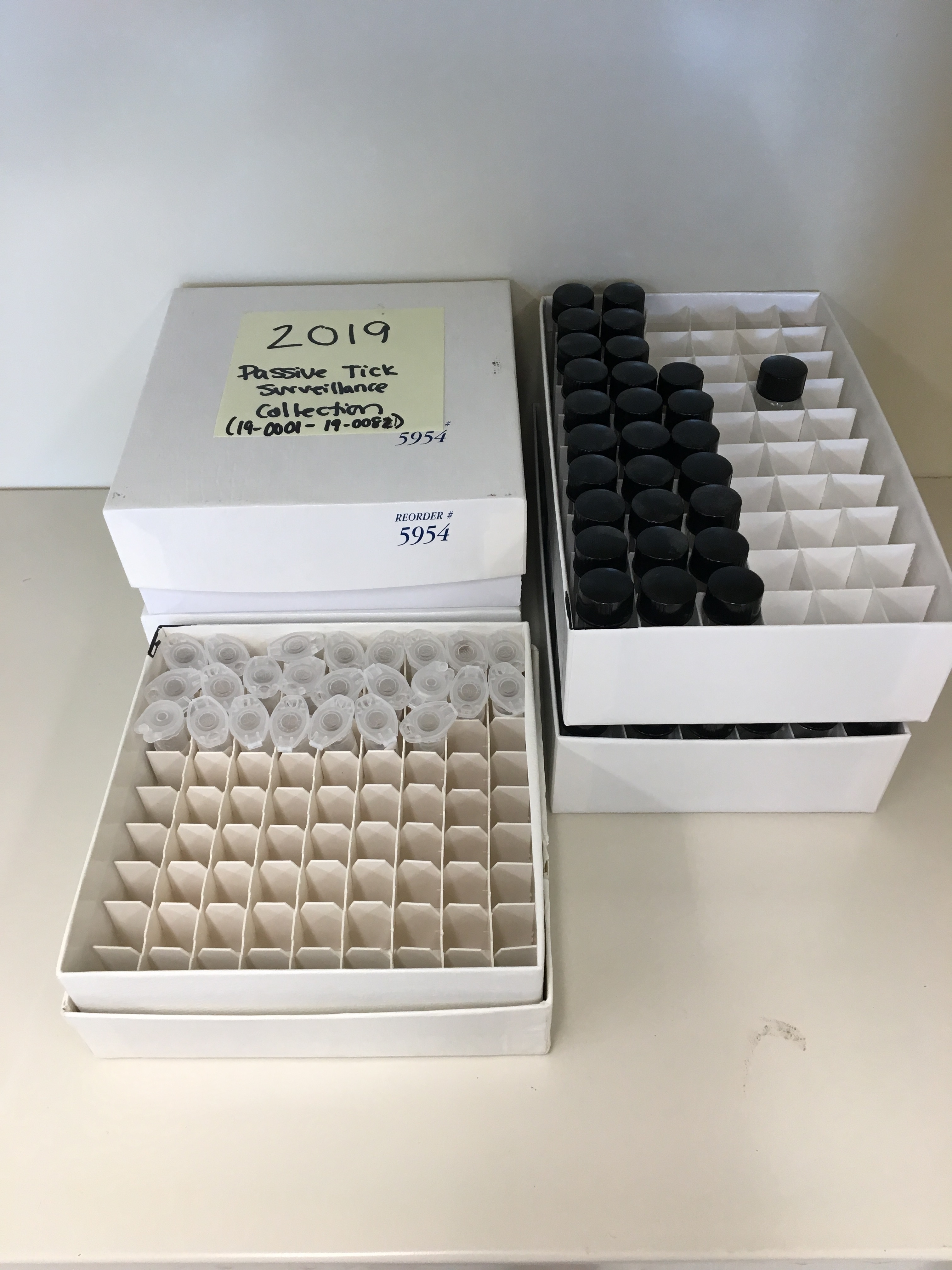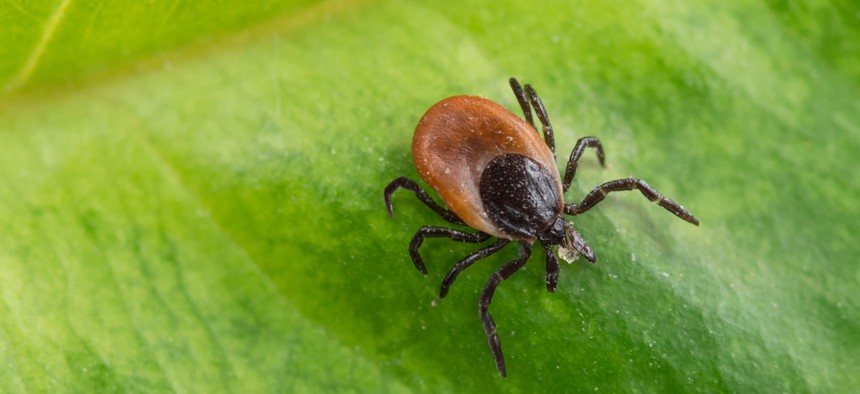Connecting state and local government leaders
Patti Casey, an environmental surveillance program manager for the state of Vermont, oversees three tick-monitoring programs, including one where she collects ticks by mail from residents.
For most people, receiving a tick in the mail would be troubling—a sign of bioterrorism, perhaps, or an ominous message from an adversary. For Patti Casey, it’s just a good day at work.
“I don’t have any on my desk right now,” she said. “But I love when I get them.”
Casey, the environmental surveillance program director at the Vermont Agency of Agriculture, Food and Markets, oversees three tick monitoring programs designed to keep tabs on the state’s parasitic population. There are around 14 types of ticks in Vermont, Casey said, but researchers almost exclusively deal with black-legged ticks (also called deer ticks) and dog ticks, along with the occasional winter tick, which primarily affects moose.
The ticks by mail are part of what’s known as a passive surveillance program, an initiative Casey started in 2016 after talking to colleagues in other New England states who had established similar projects. The program invites residents to mail in any ticks they find in the wild (or, more likely, plucked off themselves, a child or a pet), along with contact information and details about where they’ve travelled in recent days. Those details give researchers the option to follow up, helping them pinpoint the specific locations of different species of ticks.
“It’s pretty good data,” Casey said. “With our expertise in identification and following up with people and saying, ‘Do you remember going to New Hampshire? Did you get off a plane recently?,’ you can kind of pin down for sure whether the tick came from here.”

Tick-senders get data from the process as well. State officials identify for them the species of tick, the level of engorgement and the likelihood that it’s carrying disease pathogens, which can offer peace of mind to worried parents and pet owners who aren’t sure how long the parasite had been attached to their loved one. Ticks are perhaps best known as spreaders of Lyme disease, which is carried by deer ticks, but certain species can also infect people with anaplasmosis, the Powassan virus and ehrlichiosis, among other ailments.
“If you send a tick in, it’s usually because you’re concerned—it was on you or your kid, and you’re nervous about it,” she said. “We share the sex, the life stage, the engorgement and the species, so if the person were to later get sick they could take the letter to the doctor and say, ‘I know I had a deer tick, it was on me for this long because of the engorgement rate,’” information that can inform a doctor’s treatment plan.
Since the program’s inception, Casey has received several hundred ticks, usually sealed in sandwich bags tucked inside padded envelopes. Once the ticks have been identified, they’re stored in small vials of isopropyl alcohol, labeled, and placed in cardboard boxes in a lab, where they serve as a physical catalog of the state’s population.

That trove is just one of the state’s monitoring tools. Vermont’s largest surveillance measure, a joint effort between the agriculture agency and the state health department, sends two-person teams across the state twice a year to areas chosen for their rates of tick-borne diseases. The sites are selected by health officials, based on medical data, according to Natalie Kwit, state public health veterinarian for the Vermont Department of Health.
“We choose hot and cold spots to get a good lay of the land,” she said. “We want to choose sites where people will actually be encountering ticks, so most tend to be public land.”
When a surveillance team arrives at a test site, they suit up in protective gear and drag a square-meter sheet of white flannel along the ground. The fabric attracts ticks that cling to grass or leaves with their back legs and stick their front legs out to wait for a host to pass by, a process known as “questing,” Casey said. A quick brush against a leg or a paw is all a tick needs to bury its head in a host and feast on blood; the flannel accomplishes the same thing with none of the ick factor.
Teams pause every 15 meters to examine the flannel. Any ticks they find are removed with forceps and placed into tiny vials of alcohol labeled with the exact geographic location. Teams repeat the process until they’ve traveled a total of 750 meters, which can take several hours, depending on the terrain and the number of ticks removed and stored.
“Then they go back to the car and enter the label information into a spreadsheet, which gets put into a database,” Casey said.
The geographic information is used to generate a map of the tick populations throughout the state, and the actual ticks are sent to the Centers for Disease Control and Prevention, where they’re tested for five pathogens in an effort to better understand the prevalence of tick-borne diseases in the state.
That survey is conducted twice per year, in the spring and the fall. Agriculture officials also conduct a smaller-scale survey using the same method, but in randomized locations. Ticks collected in that survey are also analyzed for pathogens, but the main goal is counting to determine population density in different cities.
Taken together, the three programs provide a detailed snapshot of the state’s tick population. Thus far, officials have been able to determine that about half of black-legged ticks collected in Vermont were carrying the pathogen that can cause Lyme disease.
“If you figure out of two of them that attach to you, one carries the possibility of transmitting the disease—that’s a pretty high percentage. It makes me definitely want to put on my DEET,” Casey said. “But it’s an important distinction to make that not every tick carries disease.”
The data have also indicated that the population is on the move, marching to the northeast, and that ticks closer to the end of that migration arc are more likely to carry disease than those at the beginning. No one is sure why.
“I expect that it has to do with host abundance,” Casey said. “But with climate change and the tick population changing and moving, and host populations fluctuating annually, the numbers can go up and down.”
Additional years of data can help shed light on that and other questions, Casey said. With enough information, officials could potentially predict population patterns that correlate with factors like climate and weather conditions.
“That would be useful,” she said. “So send us your ticks.”
Kate Elizabeth Queram is a Staff Correspondent for Route Fifty and is based in Washington, D.C.

NEXT STORY: Georgia Can Use Current Voting System for 2019 Elections, Judge Rules



